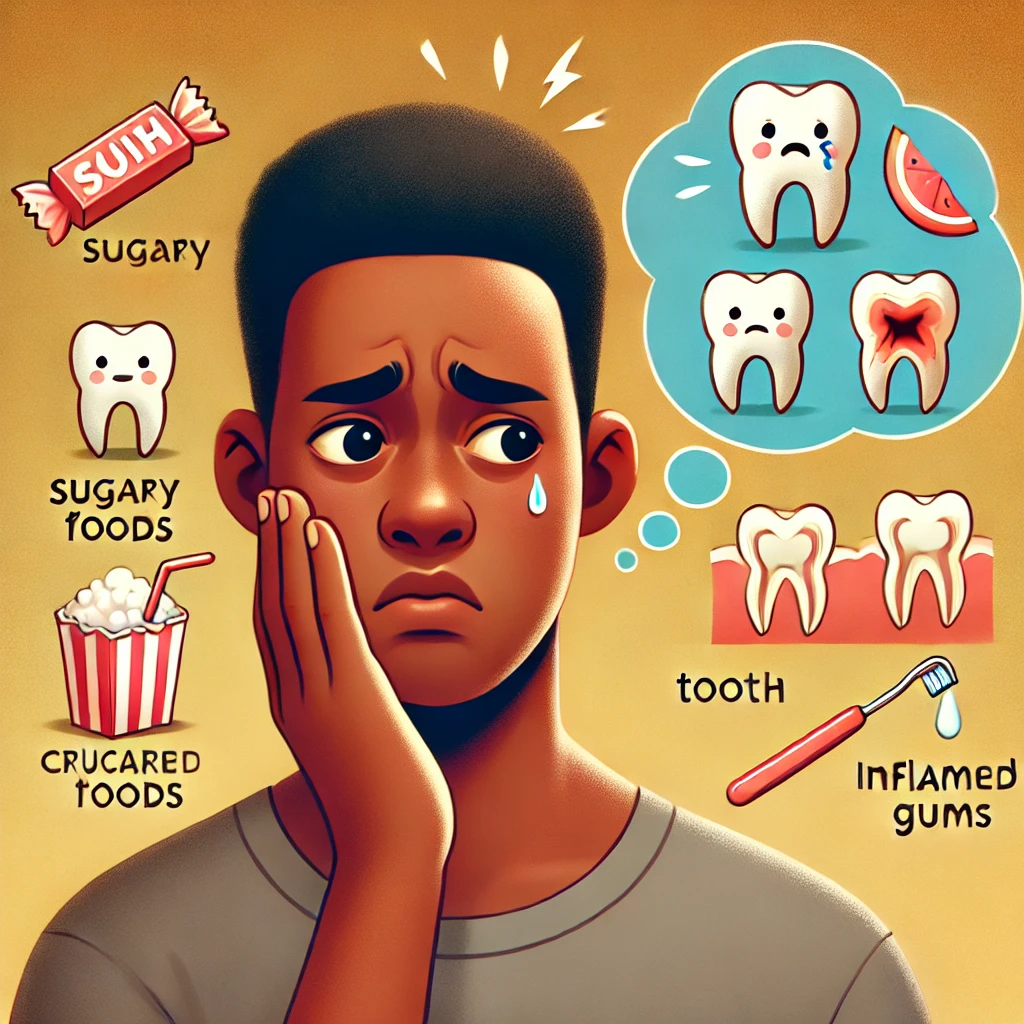Pain is the body’s alarm signal. The mouth is a key body part. Food goes in, words come out. It holds our teeth which form our smile, shape our face and chew our food. If you’re having pain in your teeth, you should pay attention to it.
We’ll look at 5 common causes of toothache and how you can prevent them.

Common Causes of Toothaches
Tooth Decay
The most common cause of tooth pain and the commonest non-communicable disease in the world. It affects 50% of the global population! Tooth decay is also called dental caries or cavities. It is a disease in which bacteria forms permanent holes in the outer covering (enamel) of the teeth. Sugary foods and drinks are a major risk factor. Poor oral hygiene and plaque formation are other risk factors. Symptoms include toothache, tooth discoloration and foul breath.
Gum Disease
Dentists would rather say gingivitis and periodontitis. The gingiva are the gums. The periodontium is the tissue surrounding the tooth and anchoring it to the gums and jawbone. These tissues may begin to weaken and break down due to build up of plaque from poor oral hygiene. Other risk factors are smoking and genetics. In its early stages, it is symptomless. When symptoms later appear, they include red swollen gums, gums that bleed while brushing, toothache, shaky teeth, and tooth loss.
Tooth Sensitivity
A feeling of sharp pain or discomfort due to exposure of the inner tooth layer (dentine) to elements like hot, cold, acid or other stimuli. The tooth has three layers from outer to inner- enamel, dentine and pulp. The enamel is lifeless very hard tissue covering the whole tooth. The dentine is softer and has some nerves in it. So, it can feel pain. The pulp at the centre is composed of nerves and blood vessels. In tooth sensitivity, the outer enamel has been scratched off exposing the softer living dentine. The stimuli I mentioned earlier cause pain when they contact the dentine. Causes of tooth sensitivity are brushing too hard, using a hard toothbrush, tooth decay, and a broken tooth.
Cracked or Broken Teeth
This follows putting excessive pressure on the teeth. This could happen following a blow to the teeth, using teeth as bottle openers, teeth grinding, or expansion of teeth fillings. Cracked teeth expose nerves which may then cause pain.
Impacted Wisdom Teeth
Your wisdom teeth are your final molars to come out. They usually come out when you’re between 17 to 25 years old. But they could get stuck on the way out. Or the tooth may come out at an improper angle. Your small jaw size and other genetic factors may account for this condition. Apart from pain and swelling, an impacted molar is hard to clean. So tooth decay may result. If left untreated, surrounding teeth and jaw tissue may suffer from infections, cysts and tumours
How to Prevent Toothaches
- Brush and Floss Daily – Use fluoride toothpaste to remove plaque.
- Limit Sugary and Acidic Foods – They promote decay.
- Visit a Dentist Regularly – At least twice a year for check-ups.
- Use a Soft-Bristle Toothbrush – Prevents gum damage.
- Drink More Water – Helps wash away food particles and bacteria.
- Avoid Using Teeth as Tools – Prevents cracked tooth.
Conclusion
Get serious about your dental health this year. Change your old toothbrush tomorrow. Start brushing two times a day. See the dentist twice a year starting this month. And if you notice any persistent toothache, go to the dentist.
Read here about receding gums!









